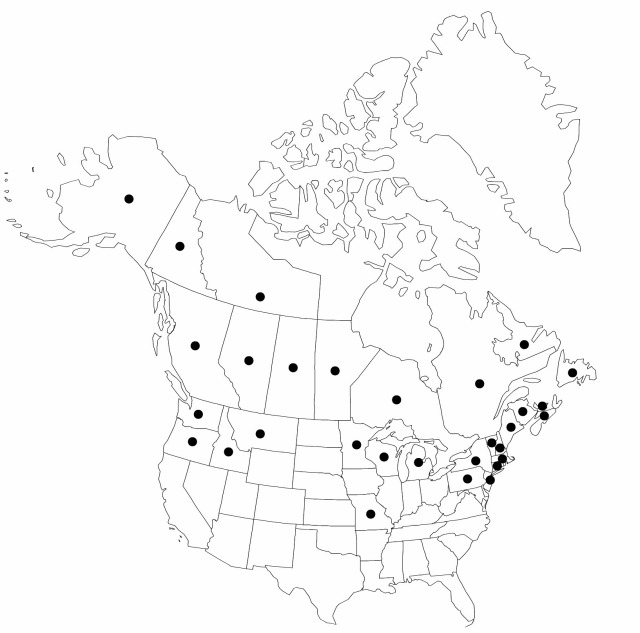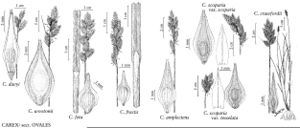Difference between revisions of "Carex crawfordii"
Proc. Amer. Acad. Arts 37: 469, plate 1, figs. 12–14. 1902.
FNA>Volume Importer |
FNA>Volume Importer |
||
| Line 32: | Line 32: | ||
-->{{#Taxon: | -->{{#Taxon: | ||
name=Carex crawfordii | name=Carex crawfordii | ||
| − | |||
|authority=Fernald | |authority=Fernald | ||
|rank=species | |rank=species | ||
| Line 47: | Line 46: | ||
|publication year=1902 | |publication year=1902 | ||
|special status= | |special status= | ||
| − | |source xml=https://jpend@bitbucket.org/aafc-mbb/fna-data-curation.git/src/ | + | |source xml=https://jpend@bitbucket.org/aafc-mbb/fna-data-curation.git/src/f50eec43f223ca0e34566be0b046453a0960e173/coarse_grained_fna_xml/V23/V23_635.xml |
|genus=Carex | |genus=Carex | ||
|section=Carex sect. Ovales | |section=Carex sect. Ovales | ||
Revision as of 20:10, 16 December 2019
Plants densely cespitose. Culms 25–60(–85) cm; vegetative culms with few leaves clustered at apex. Leaves: sheaths adaxially white-hyaline, summits U-shaped; distal ligules 1.5–6 mm; blades (2–)3–4(–5) per fertile culm, 7–22 cm × 2–4 mm. Inflorescences erect, usually dense, green, gold, or dark brown, 1.8–3 cm8–14 mm; proximal internode 2–3(–5) mm; 2d internode 1–3 mm; proximal bracts bristlelike, shorter than or equaling inflorescences. Spikes 6–14, distant, distinct, ovoid to broadly ovoid, 8–10 × 4.5–6.5 mm, base and apex acute to truncate. Pistillate scales gold to dark brown, with whitish, green, or brown midstripe, lanceolate, 3–3.8 mm, shorter and narrower than perigynia, apex acuminate to short-awned. Perigynia ascending, white to gold or light brown, 0–5-veined abaxially, 0–4-veined adaxially, narrowly lanceolate to narrowly ovate, flat except over achene or, occasionally, plano-convex, 3.4–4.1(–4.7) × 0.9–1.3 mm, 0.15–0.35 mm thick, margin flat, including wing 0.1–0.2 mm wide, usually crinkled distally; beak brown or red-brown at tip, flat, ± ciliate-serrulate, abaxial suture inconspicuous, distance from beak tip to achene (1.8–)2.1–3 mm. Achenes ± elliptic, 1.1–1.5 × 0.6–0.8 mm, 0.15–0.35 mm thick; style usually persistent, sinuate. 2n = 52, ca. 66, 70.
Phenology: Fruiting late spring–summer.
Habitat: Often in standing water, moist to wet places, open, sandy, dryish disturbed areas
Elevation: 100–1500 m
Distribution

Alta., B.C., Man., N.B., Nfld. and Labr., N.W.T., N.S., Ont., P.E.I., Que., Sask., Yukon, Alaska, Conn., Idaho, Maine, Mass., Mich., Minn., Mo., Mont., N.H., N.J., N.Y., Oreg., Pa., Vt., Wash., Wis.
Discussion
Selected References
None.
